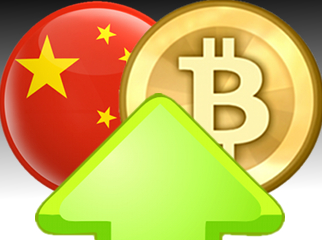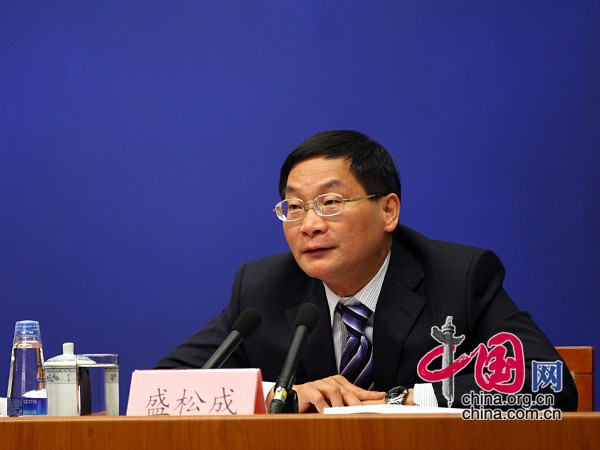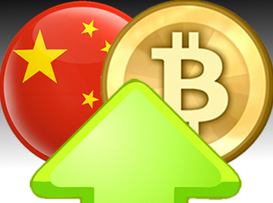Search Results For: china

Bitcoin exchange regulation in China
Soon a new bitcoin exchange regulation in China may be required to ensure know-your-customers (KYC) verifications.
According to an article published by Caixin, the People’s Bank of China issued a new paper for the Chinese exchanges on which it is looking for comments for the proposed regulation.
This move is part of a effort by the Chinese central bank in order to have a bitcoin exchange regulation and avoid money laundering and other financial crimes.
According to the official press release, this paper explains both a regulation related to the anti-money laundering (AML) issues and the creation of a customer identification system.
Bitcoin users will have to own an on-site certification if they want to deposit funds. To do se, they will have to present identification at the time of registration. Also, for clients who hold more than ¥50,000 (over $7,200) in volume, a remote video certification will be required to authenticate their own identity.
The document also contemplates that there must be a senior management team who controls AML procedures and reports dubious transactions.
This news come after the PBoC’s decision made back in January that indicates to intervene in the Chinese bitcoin market during this period of heavy bitcoin price volatility.
Since then, bitcoin exchanges started to implement several new policies, ending margin trading and freezing withdrawals for a few cryptocurrencies.
At the moment, while I’m writing this article, bitcoin Chinese exchange withdrawals are still frozen.
Open your free digital wallet here to store your cryptocurrencies in a safe place.

China Blockchain project for a new digital currency
People’s Bank of China (PBOC) is working on a China Blockchain project for a new digital currency.
According to an article published by Caixin yesterday, the People’s Bank of China completed a project on 15th December during which it tested how transactions could work by using a custom blockchain system.
The test was held together with major Chinese commercial banks including Industrial and Commercial Bank of China (ICBC), Bank of China and WeBank.
The official press release reports:
“The bank suggested the digital currency would not only reduce circulation costs but also increase transparency and curb money laundering and tax evasion.”
Also, the official report just released explained that the new China Blockchain digital currency might be connected to the Shanghai Commercial Paper Exchange to create a “national platform for bank bill transactions”.
Together with this new project the PBOC will also open a digital currency research institute for which it is looking for experts in big data, fintech, cryptography and distributed ledger technology.
The official report shared by the PBOC governor Zhou Xiaochuan in February, also explained that the central bank was considering the distributed ledger as one of a few different technologies that can be allow it to create a new form of digital cash.
Also, this project coincides with the current PBOC’s investigations into the most important bitcoin exchanges of the country, an operation that started in January and that has seen several startups doing a few changes to trading policies.
Read more news about the China Blockchain projects by clicking here.
Open your free digital wallet here to store your cryptocurrencies in a safe place.

People’s Bank of China doesn’t intend to “suppress or discriminate against Bitcoin”
headed by the chief of its financial survey and statistics department.
Sheng Song Cheng transmitted the official stance given by the Chinese
authorities: “we don’t want to suppress or discriminate against Bitcoin, we are simply saying it is not a currency”.
conference held this Wednesday (15) is being welcomed by the Bitcoin
community as a positive development in China’s apparent war against
digital money. The meeting was focused on the country’s 2013 financial
statistics, but Bitcoin popped up as the journalists started asking
questions about it.
doesn’t have the characteristics of a currency. As far as I know, the
vast majority of countries does not recognize Bitcoin as a currency”,
Sheng Song Cheng answered.
status in China as a “virtual good”, he also added that the “People’s
Bank and the relevant departments will continue to focus on Bitcoin and its associated risks,
strengthen the monitoring and analysis and guide the public to
establish a correct concept of money and investment philosophy”.
cryptocurrency falls under Sheng Song Cheng’s public opinion about
Bitcoin. Recently, he wrote an article
saying that “it would be difficult to see how Bitcoin could ever be
considered a currency in the future”. The English edition of the
newspaper Global Times even quoted Sheng as the author of a powerful
sentence: “Bitcoin is merely a utopia for technology supremacists and
absolute liberalists”.
Bitcoiners, this means that China is legitimizing Bitcoin, despite the
country’s successive warnings about the high risks of dealing with
the digital coin. For now, the authorities aren’t banning Bitcoin –
neither do they plan to do it -, only tightening the regulation and keeping an eye on the users and exchanges.
Open your free digital wallet here to store your cryptocurrencies in a safe place.
BTC China in discussion with regulators over Bitcoin recognition
(CoinDesk) The world’s busiest bitcoin exchange, BTC China, has been in talks with regulators to approve bitcoin as an official currency, according to Bloomberg Businessweek.
While there have been some ‘lower-level’ discussions, the company has not yet had any success arranging high-level meetings, said BTC China CEO, Bobby Lee.
This isn’t surprising, given the reluctance of governments worldwide to make official statements about the currency’s legal status.
To grant official approval would likely cause a spike in activity, with many fearing activity on such a grand scale could undermine one of government’s key economic powers: overseeing fiat currencies. This hasn’t stopped a recent flurry of interest from high-level government officials, as bitcoin’s value soars too high to ignore. At the time of writing, the bitcoin price on BTC China was 6,267 CNY, or $1,027. Mt. Gox’s price was $1,050, and it was around $990 on the Coindesk BPI. The upper echelons of government feature many opinions on bitcoin, including some that have shifted over the years. Senator Chuck Schumer, who in 2011 described bitcoin as “an online form of money laundering,” and called for a crackdown, recently tweeted that the cryptocurrency had “significant potential”. Deputy governor of China’s People’s Bank, Yi Gang, hinted at a personal (unofficial) approval of bitcoin exchanges and people’s ability to trade in and out of digital currencies, but also said it would be impossible for the central bank to recognise bitcoin “in the near future”.
BTC China has taken Gang’s comments on board, and Lee has continued to hold discussions with local regulators. He has also answered questions about how bitcoin should be regulated, remaining optimistic about the long-term, describing bitcoin’s current status as:
“Not on the black list and not on the white list. It’s in the grey area.”
In the bitcoin universe, anything short of a call for blacklisting can be taken as progress. But while its “grey area” status allows exchanges and payment processors to function reasonably well at the moment, many think some form of recognition and subsequent regulation is necessary for bitcoin to gain widespread acceptance.
Open your free digital wallet here to store your cryptocurrencies in a safe place.

China’s third-largest mobile network now accepts Bitcoin!
(CoinDesk) Consumers in China can now purchase smartphones with bitcoin from a
major carrier, after a local division of China Telecom announced a
promotional offer for new Samsung phones this week.
China Telecom’s subsidiary Jiangsu Telecom, in Jiangsu province on the east coast of the country, posted the offer on its website. Translated details were scarce, but it appears customers have the chance to use bitcoin instead of yuan to pre-order Samsung’s 2014 clamshell form-factor Android phone.

Any business newly accepting bitcoin, even in a small way, is
guaranteed to gain disproportionate attention in these times. So on the
surface, many recent stories of bitcoin acceptance from China seem more
promotional than revolutionary. Indeed, this is a limited offer for one
model phone from a local provider and not a major announcement of
large-scale bitcoin adoption.
However, it’s also a sign large state owned enterprises in China, or at least
certain divisions of them, are more open to experimentation with bitcoin
than their overseas counterparts.As of this month, most bitcoin
acceptance in other parts of the world remains limited to owner-operated
small businesses and startups. A division of Chinese internet search
giant Baidu also announced recently it would accept bitcoin as payment.
Jiangsu
Telecom’s offer also strikes a more positive note than previous reports
from China earlier in 2013, which suggested China Telecom was trying to block
bitcoin-related traffic from its services. China Telecom is China’s
largest fixed-line provider and its third-largest mobile carrier.
If
bitcoin can be used as a promotional tool to attract younger and more
technology-aware consumers, it also indicates the Chinese market itself
is more ready for alternate forms of payment.
Open your free digital wallet here to store your cryptocurrencies in a safe place.
BTC China to become the world’s No. 1 Bitcoin exchange!
(CoinDesk) BTC China has become the world’s biggest digital currency exchange having handled a greater volume of bitcoins in the past week than Mt. Gox and Bitstamp.
 More than 109,841 bitcoins have been exchanged on the site in the past seven days, compared with 93,372 on Bitstamp and 76,673 on Mt. Gox, according to data from Bitcoinity.org. In the past 24 hours alone, BTC China has processed 36,104 bitcoins, compared with Mt. Gox’s 24,913 and Bitstamp’s 23,214.
More than 109,841 bitcoins have been exchanged on the site in the past seven days, compared with 93,372 on Bitstamp and 76,673 on Mt. Gox, according to data from Bitcoinity.org. In the past 24 hours alone, BTC China has processed 36,104 bitcoins, compared with Mt. Gox’s 24,913 and Bitstamp’s 23,214.Open your free digital wallet here to store your cryptocurrencies in a safe place.

The Evolution of Bitcoin Treasuries: A Strategic Asset in the Digital Age
In the digital era, Bitcoin has transitioned from a speculative investment to a strategic reserve asset for both sovereign nations and global corporations. This shift reflects growing confidence in cryptocurrency’s potential to serve as a hedge against inflation, a means for diversification, and a symbol of technological advancement. Below, we explore how different entities are leveraging Bitcoin, the impact of these investments, and the broader implications for the global financial ecosystem.
Sovereign Wealth in the Age of Cryptocurrency
Rumors swirl around Bulgaria’s acquisition of over 200,000 BTC, purportedly through law enforcement seizures. This positions Bulgaria as potentially one of the largest national holders of Bitcoin, sparking discussions on the implications for national financial strategies and the potential for Bitcoin to contribute to sovereign wealth funds.
In a striking move, German authorities seized Bitcoin worth approximately $2.1 billion, linked to criminal activities. This not only underscores the asset’s value but also highlights the growing role of cryptocurrencies in legal and financial frameworks within state operations.
On the national front, the United States leads with a staggering 207,189 Bitcoins in its possession, much of which has been acquired through seizures from criminal activities, including the notable Silk Road case. Following closely is China, with 194,000 Bitcoins, and Ukraine with 46,351 Bitcoins. These holdings by governments indicate a significant shift towards acknowledging the potential of Bitcoin not just as an investment but also as a strategic reserve akin to gold.
El Salvador has been particularly noteworthy for its proactive stance towards Bitcoin, officially adopting it as legal tender and actively purchasing Bitcoins to hold in its national treasury with a current 40% increase in value since adoption. This bold move by El Salvador represents one of the most significant endorsements of cryptocurrency by a sovereign state, aiming to leverage Bitcoin for economic growth and to increase financial inclusion for its citizens.
Corporate Holdings in Bitcoin
Leading the charge in the corporate sector is MicroStrategy, which holds a massive 190,000 Bitcoins, making it the top private holder of the cryptocurrency. This move underscores a growing trend among companies to diversify their assets and bet on the appreciating value of Bitcoin as a digital gold. Other notable companies with substantial Bitcoin investments include Marathon Digital Holdings, Galaxy Digital Holdings, Coinbase Global, and Tesla, Inc., each holding thousands of Bitcoins. These investments are not just a testament to Bitcoin’s growing acceptance but also reflect a strategic approach to hedge against traditional financial volatility and inflation.
The total holdings of Bitcoin by ETFs, excluding Grayscale’s GBTC, have surpassed those of MicroStrategy, reaching a combined total of 192,255 BTC. This number is more than the 190,000 BTC held by MicroStrategy, making these ETFs significant holders of Bitcoin. The recent addition of nearly 5,000 tokens to their holdings indicates a growing interest and investment in Bitcoin through ETF vehicles. These funds have attracted billions of dollars from investors seeking exposure to Bitcoin without the direct purchase and storage of the cryptocurrency
Sovereign Bitcoin Treasuries
On the national front, the United States leads with a staggering 207,189 Bitcoins in its possession, much of which has been acquired through seizures from criminal activities, including the notable Silk Road case. Following closely is China, with 194,000 Bitcoins, and Ukraine with 46,351 Bitcoins. These holdings by governments indicate a significant shift towards acknowledging the potential of Bitcoin not just as an investment but also as a strategic reserve akin to gold.
El Salvador has been particularly noteworthy for its proactive stance towards Bitcoin, officially adopting it as legal tender and actively purchasing Bitcoins to hold in its national treasury. This bold move by El Salvador represents one of the most significant endorsements of cryptocurrency by a sovereign state, aiming to leverage Bitcoin for economic growth and to increase financial inclusion for its citizens.

bitcoin treasuries april 2024
The Global Perspective
The strategic accumulation of Bitcoin by both corporations and countries highlights a growing recognition of its value as a digital asset. The adoption and investment in Bitcoin are driven by various factors, including its potential for high returns, its role as a hedge against inflation, and its increasing acceptance as a legitimate financial asset on the global stage. This trend is indicative of a broader shift in the financial world, where digital assets are increasingly seen as integral components of investment portfolios and national reserves.
The implications of these investments are vast, affecting everything from the valuation of Bitcoin to the regulatory and economic policies surrounding cryptocurrencies. As more entities continue to explore and invest in Bitcoin, its role in the global financial ecosystem is likely to evolve, potentially leading to increased stability, acceptance, and integration into mainstream financial systems.
The landscape of Bitcoin treasuries is a dynamic and rapidly evolving field, reflecting the broader shifts towards digital currency and assets in the global economy. As companies and countries navigate this new terrain, the strategies and impacts of Bitcoin holdings will continue to be a significant area of interest and analysis for investors, policymakers, and the public alike.
Open your free digital wallet here to store your cryptocurrencies in a safe place.

What’s Wiser: Storing Crypto at the Exchange or in a Wallet?

Exchanges are the entry gate for newcomers in the crypto world. Apart from direct deals which are pretty rare at the moment, these platforms represent a great option to get some cryptocurrency for fiat money. But are the exchanges fully secure?
Surely, websites are pretty convenient and user-friendly as they are targeted on different traders including total newbies. But their security isn’t ideal. Just remember the hack of Coincheck in January 2017 or the famous history of Mt.Gox’s rise and fall.
Despite threats and risks, some crypto investors keep their money at the exchanges’ in-built storages. Others prefer private wallets. Who is right? Let’s try to figure it out and reveal where your coins will be safer.
Basics of storing crypto
Crypto isn’t tangible as fiat money. It exists online and records transactions by using blockchain. For storing assets, you can use in-built storages at the exchange platforms and crypto wallets which are unique addresses and can function both online and offline.
Each wallet consists of public and private keys. Public keys can be compared to email addresses – in order to receive some coins, you have to share this number with a sender. Private keys work like a password, as only the owner knows them. They can be subjected to frauds which is why it’s essential to secure your crypto as much as possible.
Storages at the exchanges – easy to use but vulnerable
Centralized crypto trading platforms which allow users buying and selling various coins are similar in one: they control accounts by not disclosing private keys to users. Сustomers just have to trust exchanges in keeping their coins secure. Of course, large projects like Coinbase, Binance, or CEX.IO have strong security teams and offer offline storages and multi-signatures to protect users’ funds better. But they also can be a sweet spot for hackers who focus on big-volume websites. Any reputable guide will warn you about the dangers of storing coins this way.
Cryptocurrency exchanges are vulnerable to market manipulations and can be hacked even when they have all the security measures needed. While choosing a platform to trade at, check hacking statistics, explore different opinions and overviews to be sure that the website you’ll be using cares about keeping your funds safe.
Apart from the problems with ownership and security, there’s an issue with the lack of regulation. Your coins aren’t totally protected as long as your country doesn’t move to the crypto legislation. While influential countries like China ban crypto activities, the market remains highly unstable which affects the level of security.
Keeping crypto at the exchanges has its advantages, too. These platforms are really convenient in terms of using the funds for trading. Customers like doing everything in one place: buying crypto with fiat (this option is not available everywhere, though), selling or trading coins. Using crypto-to-fiat exchanges like Kraken or CEX.IO, you can perform different actions at once.
Briefly summarizing, in-built storages at the exchanges are very convenient, especially when you don’t want to lose time and effort on setting up a wallet. But it’s better to keep coins there only for active trading, as there are no solid guarantees that your funds will remain safe.
Storing in wallets – various options
The level of security varies depending on the wallet’s type. Similarly to exchanges, you can store coins online or offline: the first option is represented by web-based and software wallets, while the seconds one is about paper and hardware ones.
Hot wallets
Web-based wallets are connected to the Internet. Desktop and mobile ones can be installed offline, but for their security not to be compromised, you need to keep them on a spare device with no access to the Internet. The main advantage of hot wallets is that they allow transferring money anytime and very quickly which is especially beneficial for active traders.
As for drawbacks, such systems are extremely vulnerable to fraudsters and phishers, no less than exchanges. It’s not recommended to use them for large amounts of crypto. If you’re still going for hot wallets, make sure you realize what risks it entails. Use it for day-trading or petty cash and avoid common mistakes: not calculating fees or spending unconfirmed outputs.
Cold wallets
Unlike the first type, these systems work offline which makes them practically immune to hackers and frauds. The most secure wallets are paper and hardware ones. Using the paper type is easy and free, but it holds risks of damage (paper can easily be destroyed) and the human factor (users can simply forget where they’ve put their wallets).
Hardware wallets that function as a flash drive are the most flexible: you can connect them to your device any time you want to perform a transaction and you can do it as many times you need. There’s one notable flaw, though – hardware devices are not free. For wallets like Trezor or Ledger, you’ll have to pay about $100. Also, they may be not that easy to use, but this is not important in contrast to the security they offer.
Final tips
If you’re planning on having active and diverse crypto activities, it’s advisable to combine both approaches to crypto storing: keep your main funds offline and have some money at the exchange. While dealing with hot storage, choose trusted platforms and wallets, enable two-factor-authentication, don’t open suspicious links that might look like actual services. As an additional measure, write your private keys down – keep this backup in a place only you can access, and do the same with paper wallets.
Risks related to storing crypto bring the issue of trust to the foreground: while centralized systems designed to work with decentralized currencies often fail to guarantee a perfect security level, it indicates the need for a new approach which would be more relevant to the very idea of crypto.
Open your free digital wallet here to store your cryptocurrencies in a safe place.

Bitcoin demand in Asia is more active than in the US
Back on May 31st, one the major Bitcoin exchanges in China called OKCoin returned to help improving the Bitcoin demand withing the Chinese exchanges after a period of suspension of transactions.
As a result, more bitcoin investors are recovering their interest in bitcoin and they are driving the demand for the digital currency.
So, thanks to the activation of withdrawals, bitcoin is now trading at a premium rate in China.
Also, the Chinese press that talks about bitcoin as digital gold is pushing the recent growth of the bitcoin demand for local traders.
On Friday, bitcoin price was about $2,340 in China. A value that was $50 higher than the US rate.
Of course, there are several other major factors that are driving bitcoin price. For example the legalization of the digital currency in Japan, and the use of ICOs in raising funds.
Experts believe that the increasing demand in Asia is pushing the recent growth in the bitcoin price.
South Korea
In South Korea, Bitcoin price increases up to $3,100 when the price on the US exchanges was about $2,400, so $300 higher than the US.
A few startups are also using bitcoin for sending remittances since it works better and faster than traditional money.
For example, one of these startups is called Bluepan, located in South Korea. This company provides an easy way to send money from overseas workers to their families.
In 2 years, Bluepan has processed payments worth $65 mln and for the past year, they recorded a five-time increase in transactions.
Why in Asia?
That said, it is clear that Bitcoin demand in Asia is increasing and its driving prices, while North America shares only a small amount of all users in any sector.
For example, there are fewer customers in North America who use money transfers than in Asia.
This is maybe due to the fact that the worldwide financial system is based on the US dollar, so remittance transactions are easier between dollars and non-dollar currencies compared with transactions that involve two non-dollar currencies.
Open your free digital wallet here to store your cryptocurrencies in a safe place.

Bitcoin Airlines: Japanese Peach to accept the digital currency
Peach Aviation is going to become the first Japan’s airline to accept bitcoin for buying any flight.
This move comes after the Japanese decision to regulate bitcoin as currency, becoming a legal method of payment back in April 1st, 2017.
During a recent interview with CEO Shinichi Inoue, he said:
“Now you can travel without your wallet. I think this is innovation; we’ll put all our energy into it.”
Peach is a budget domestic flights company that operates in Korea, China and Thailand.
The firm announced that they will accept bitcoin payments by the end of 2017; also, the firm is looking to install Bitcoin ATMs at airports.
“This is a real first step in partnerships for Japan and we are aiming for more company and service tie-ups,” said Inoue in an interview conducted by Bloomberg.
“We want to encourage visitors from overseas and the revitalization of Japan’s regions.”
Several major retailers and merchants are starting to accept bitcoin in Japan thanks to the recent law on digital currencies, as you can read here.
And this is maybe one of the prominent reason why bitcoin price is growing so much during the latest period.
Also, Japanese traders are driving bitcoin prices as they transacted huge amounts on the exchanges: recent studies revealed that Yen is the major fiat currency being exchanged for bitcoin.
Bitcoin airlines worldwide
There are a few other bitcoin airlines in the world and also several ways to book a flight with digital currencies.
For example, CheapAir and BtcTrip are the first platforms that accept this disruptive method of payment.
Also, Latvia-based airline and Virgin Galactic began accepting bitcoin since 2013/2014, while if you want to book a private jet, you can do it through JetVizor.
More bitcoin airlines to suggest? Write us a message in the comments! We would be happy to add new companies.
Open your free digital wallet here to store your cryptocurrencies in a safe place.
